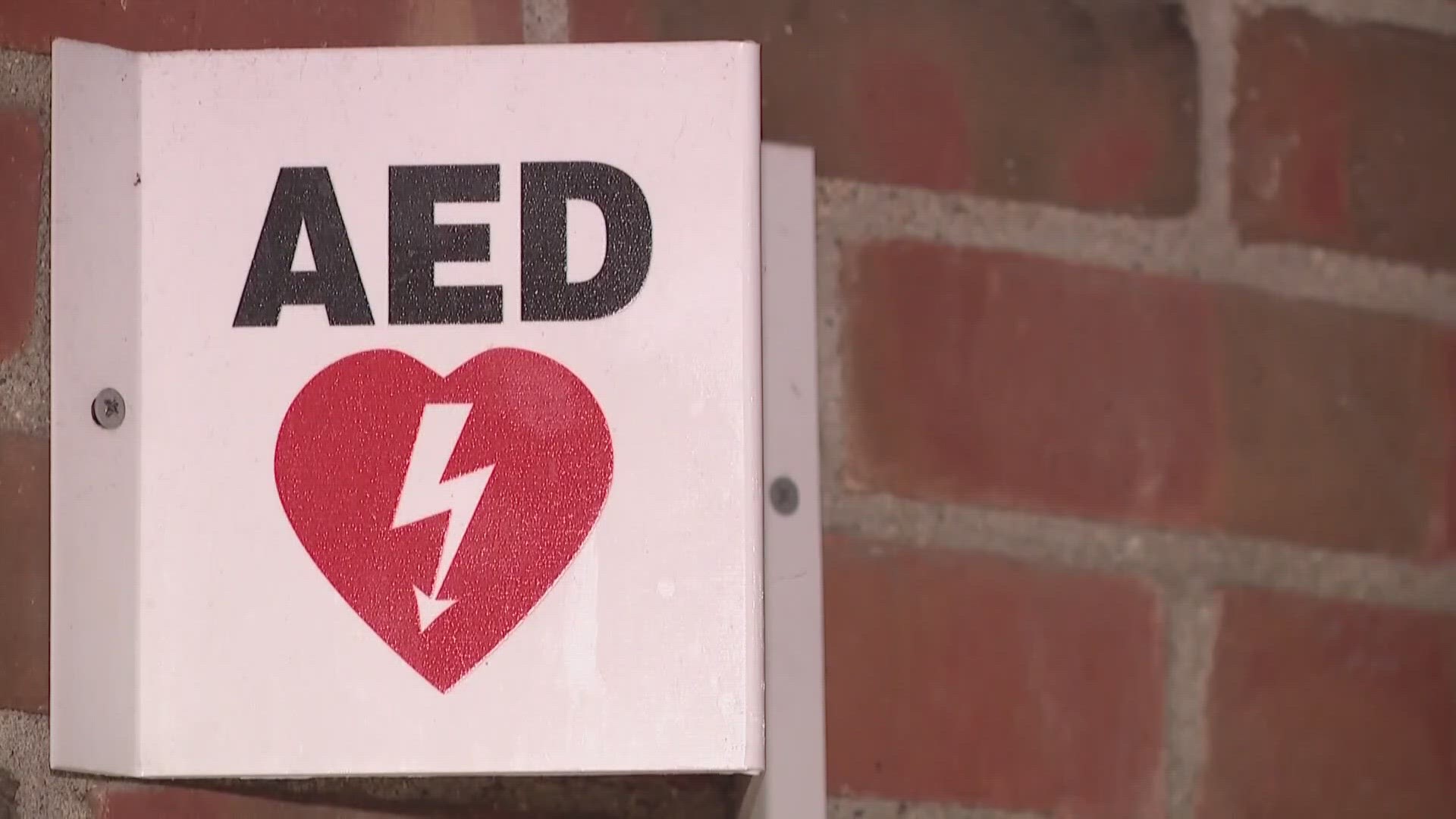COLUMBUS, Ohio — Automatic external defibrillators, or AEDs, could be placed in nearly every school or sports and recreation venue in Ohio under a proposal that cleared the Republican-dominated House Wednesday with overwhelming bipartisan support.
Nearly 30 states have AED mandates that certain businesses have these life-saving boxes. Ohio is not one of them.
The legislation, sparked by the sudden cardiac arrest of Buffalo Bills player Damar Hamlin in January on the field during a football game in Cincinnati, would require that all public schools, municipally-owned sports and recreation locations such as gymnasiums and swimming pools, and some private schools have on-site AEDs.
It cleared the chamber on an 84-6 vote.
Current Ohio law allows school districts to require AEDs on site, but it's an elective decision that's left to individual districts.
State Rep. Adam Bird of New Richmond, one of the bill's sponsors, said he's confident many districts already have AEDs, but making it a requirement can help further protect students.
Under the bill, employees would be required to undergo special training on how to use AEDs and recognize the signs of cardiac arrest. Informational sessions for students on sudden cardiac arrest would be required before the start of any athletic season.
The measure also calls for the Ohio Department of Health to develop a model emergency action plan for schools, centers and sports groups to adopt on the use of AEDs.
Hamlin went into cardiac arrest, fell flat and had to be resuscitated on the field after making what appeared to be a routine tackle during a game against the Cincinnati Bengals that was being broadcast to a national prime-time audience on Jan. 2.
More than two dozen supporters showed up to testify on the bill in committee hearings, including medical groups, emergency responders and those whose lives were saved by having access to an AED during a cardiac episode. All supported the possible new requirement as a way to save lives that may otherwise end too soon.
The proposal now heads to the Senate for consideration.

